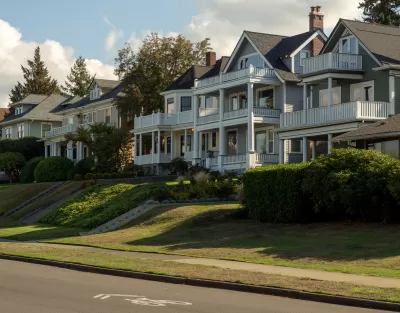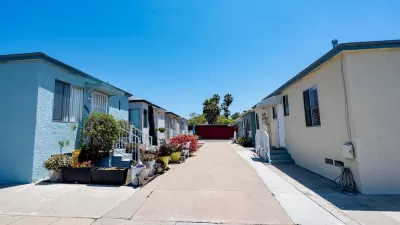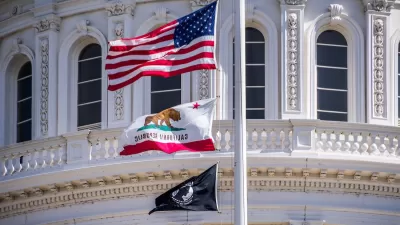The new law will prevent local governments from prohibiting the development of coliving multifamily development through zoning and other regulations.

Washington Governor Jay Inslee signed a bill in March that clears the way for coliving. With rents across the state soaring and supply of affordable housing far below demand, the new law is aimed at boosting versatile and affordable options across the state, reports Lauren Rendahl with the Spokesman-Review.
The new law, which will go into effect in June, requires cities and counties to allow coliving permitting housing on residential lots where at least six multifamily housing units are permitted by January 2026 and prohibit regulations against their development.
“Additionally, local governments cannot mandate off-street parking within half a mile of a major transit stop or require more than one off-street parking space per sleeping unit for this housing style,” Rendahl writes.
Coliving, also known as cohousing, developments are a type of housing that is communal in nature, typically involving multiple units within a single home or a cluster of single-family homes or condos on a single lot that share common spaces. But their development is often prohibited by local zoning laws, including restrictions on the number of units per parcel, the relationships or number of occupants per unit, and off-street parking minimums (neighborhood residents often oppose these type of developments out of concern for increased demand for street parking). That said, major cities across the country, including Washington, D.C. and Houston, have been experimenting with cohousing in recent years as a way to provide affordable living options to residents.
FULL STORY: Co-living residential housing is coming to Washington after Inslee signs bill into law

Alabama: Trump Terminates Settlements for Black Communities Harmed By Raw Sewage
Trump deemed the landmark civil rights agreement “illegal DEI and environmental justice policy.”

Study: Maui’s Plan to Convert Vacation Rentals to Long-Term Housing Could Cause Nearly $1 Billion Economic Loss
The plan would reduce visitor accommodation by 25% resulting in 1,900 jobs lost.

Planetizen Federal Action Tracker
A weekly monitor of how Trump’s orders and actions are impacting planners and planning in America.

Waymo Gets Permission to Map SF’s Market Street
If allowed to operate on the traffic-restricted street, Waymo’s autonomous taxis would have a leg up over ride-hailing competitors — and counter the city’s efforts to grow bike and pedestrian on the thoroughfare.

Parklet Symposium Highlights the Success of Shared Spaces
Parklets got a boost during the Covid-19 pandemic, when the concept was translated to outdoor dining programs that offered restaurants a lifeline during the shutdown.

Federal Homelessness Agency Places Entire Staff on Leave
The U.S. Interagency Council on Homelessness is the only federal agency dedicated to preventing and ending homelessness.
Urban Design for Planners 1: Software Tools
This six-course series explores essential urban design concepts using open source software and equips planners with the tools they need to participate fully in the urban design process.
Planning for Universal Design
Learn the tools for implementing Universal Design in planning regulations.
Caltrans
Smith Gee Studio
Institute for Housing and Urban Development Studies (IHS)
City of Grandview
Harvard GSD Executive Education
Toledo-Lucas County Plan Commissions
Salt Lake City
NYU Wagner Graduate School of Public Service





























